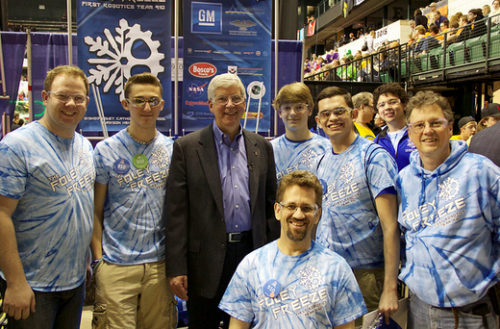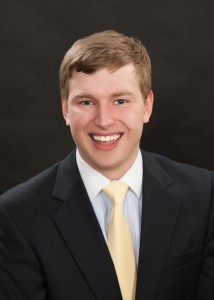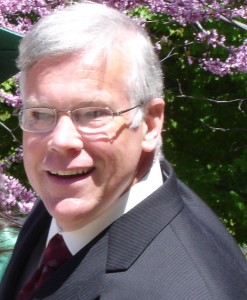On Friday, Politics and Money columnist Rick Haglund and Millennials and Money columnist Rian Bosse discussed Michigan’s attempt to keep young people from leaving the state after graduating from college. Today, they look at the political impact millennials have had on campaigns and local economies.
Rian:
Is Michigan doing anything to promote education at community colleges? Do you think this younger generation is looking at the career options from taking that route instead of four year degrees? Also, what are the implications in Michigan of President Obama’s push for free community college?
Rick:
Gov. Rick Snyder says connecting young people to jobs in the skilled trades is a top priority. Last month, the state awarded $50 million to 18 community colleges for new equipment to train students in skilled trades occupations.
But it’s a difficult sell to many students who watched their parents lose skilled trades jobs in the manufacturing and construction industries during the Great Recession. And despite claim that these are good-paying jobs, the Pew Research Center recently found that wages for millennials with some college or two-year degrees have fallen over the past 35 years.
In Michigan, more than half of community college students are accumulating credits with the intention of transferring to a four-year college or university. Despite the governor’s effort, they are not enrolled there to be trained for skilled trades jobs and other occupations requiring less than a bachelor’s degree.
President Obama’s proposal for free college might boost community college enrollment, but I’m not sure it will lead to more people seeking jobs that require less than a bachelor’s degree.
One area that seems to be important in retaining and attracting millennials is quality of place. Millennials who grew up in the suburbs see them as sterile and bland. They are flocking to cities, particularly to downtowns and nearby neighborhoods.
It’s happening in Detroit, where companies also are relocating from the suburbs to attract young workers. And Grand Rapids, once derisively known as “Bland Vapids,” has developed a vibrant downtown.
I’m told that young college grads often move to where they want to live and then look for jobs. How important to you think an urban strategy is for cities and states that are trying to retain and attract millennials?
Rian:
I think it’s very important. So important that young people are moving to cities that offer that downtown feel for a reasonable price. Detroit is a great example, Grand Rapids one too. They join cities like Buffalo, St. Louis, Minneapolis and a handful more that are affordable for young people but also offer a vibrant city scene.
It’s a delicate balance. Millennials want to live in quality cities, but they also want meaningful careers, even if it means making less money.
I think another big topic for millennials and where they live is politics, even though they don’t always show up to the voting booths. Millennials usually lean progressive and have supported the Democratic Party in the past. But recently, there has been a little bit of a sway towards the GOP, which even happened in the last Michigan election.
When I was living in Michigan, I remember Rick Snyder’s election was a big defeat for Democrats in 2010. Have you noticed young people shifting towards Republicans, or was it just their inactivity during midterm elections in 2014? Are parties making a serious effort to attract young people? Is that changing the political scene in Michigan?
Rick:
I don’t know that there’s been a big shift of young people to the Republican Party in Michigan. The redrawing of political districts–gerrymandering, if you will–has probably been a bigger factor in the GOP’s control of both houses of the Michigan Legislature. Snyder should have coasted to an easy victory in 2014, but beat Democratic challenger Mark Schauer by only four percentage points.
Republicans generally believe that if you provide good jobs, young people will come to Michigan. But even though the economy has improved markedly since the end of the Great Recession, net outward migration of young college graduates from Michigan has increased.
Democrats have pushed legislation to make college more affordable and to make Michigan more welcoming to all, but have been stymied by Republicans, who are in total control of state government.
Republican lawmakers have pushed a strong conservative social agenda on issues such as abortion, gay marriage and LGBT rights. There is anecdotal evidence that their actions on these issues are driving young talent out of Michigan to more welcoming places, but that’s hard to quantify. Do you think millennials decide where to live based on whether a state is aligned with their views on social issues?
Rian:
It might not be the most important, but I think it’s on the minds of many millennials. Social issues, like the ones you mentioned, are big for millennials, so moving to places that are a little more progressive on those issues, Denver being the hot one right now, is desirable for us.
A lot of people in the press seem confused about this generation’s political views. At least that’s how I see it. Recent Pew and Reason Foundation studies have sparked a perception that millennial political views don’t make sense. They want big government but they don’t want to pay for it, things like that. Apparently, a lot of commentators have concluded, that means we’re either confused or clueless.
But, to me, that’s an attitude a lot Americans have. (Remember the conservative call to “Keep the government out of Social Security!”) I think millennials are more attracted to taking action rather than signing up for a political party. A recent Harvard study found 80 percent of millennials don’t consider themselves politically active. I think that’s more telling of our distrust of politicians, not social and public apathy.
Of course, some think that’s lazy and dangerous, like in this column I just read in USA Today calling for millennials to help end gridlock in Washington. Lazy or not, the millennial drive for community volunteerism has created this combination of social activism and entrepreneurialism, something that fulfills our desire for a meaningful career.
I think that’s been a good thing for cities like Detroit or Buffalo. Someday we might come around to political action through the ballot box. Personally, I hope we do. But I think we’re doing a lot already, probably more than we get credit for, in trying to grow local economies organically.












